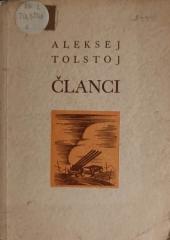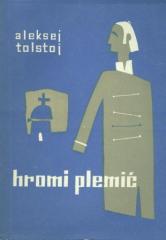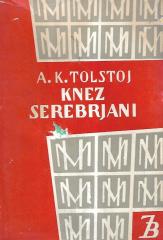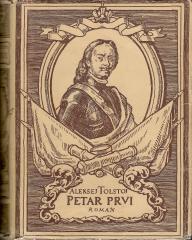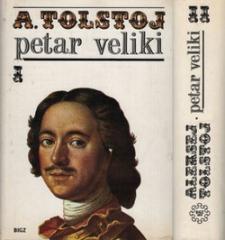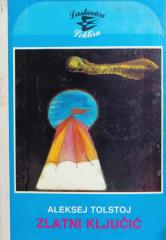Aleksej N. Tolstoj
Russian writer (Nikolayevsk, Samara province, today Pugačov, January 10, 1883 – Moscow, February 23, 1945), descendant of a noble family. He has been engaged in literature since 1905. In the Civil War, he was an opponent of the Bolsheviks, and in 1918 he emigrated to France; In 1921 he moved to Berlin, and in 1923 he returned to Soviet Russia. He wrote the utopian novel Aêlita (1922) in Berlin, but it already depicted a revolution, even on Mars. He confirmed the reputation of the "red count" with his novels, which became an integral part of the treasury of "socialist realism". Already as an emigrant, he began writing Hoždenie po mukam (Hoždenie po mukam, 1920–41) as a work about the fate of the Russian intelligentsia in the revolution and the Civil War, with an obvious "varnishing" of historical reality. The novel Peter the First (Pëtr Pervyj, 1930–45) is based on a vast historical material, skillful stylization, but also on the writer's answer to contemporary historical questions. The drama Ivan the Terrible (Ivan Groznyj, 1942–43) is even closer to Stalin's conceptions, as a response to the negative attitude of Russian culture towards the person of the tyrannical tsar. The novel Hljeb (Bread, 1937) is a historically credible apology for Stalin's role in the defense of Tsaritsyn (later Stalingrad, today Volgograd).
Titles in our offer
Članci (1942 - 1943)
Hromi plemić
Knez Serebrjani
Petar Prvi - roman u tri dijela
Alexei Tolstoy is a famous Russian writer, and his book "Peter the Great" is a historical novel that deals with the life and reign of the Russian emperor Peter the Great.
Petar Veliki sv. I-II
Alexei Tolstoy is a famous Russian writer, and his book "Peter the Great" is a historical novel that deals with the life and reign of the Russian emperor Peter the Great.
Zlatni ključić
The novel represents Tolstoy's adaptation of Pinocchio by Carlo Collodi; he got the idea for the novel as a child, when he was read only the first part of the book, so he invented the rest himself.
